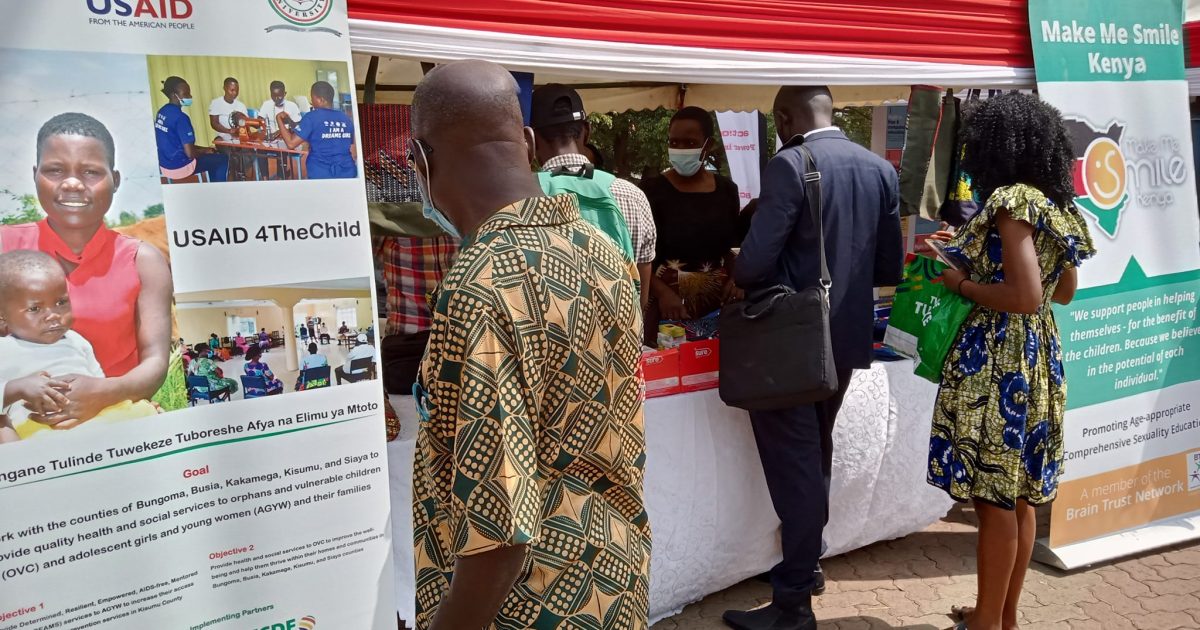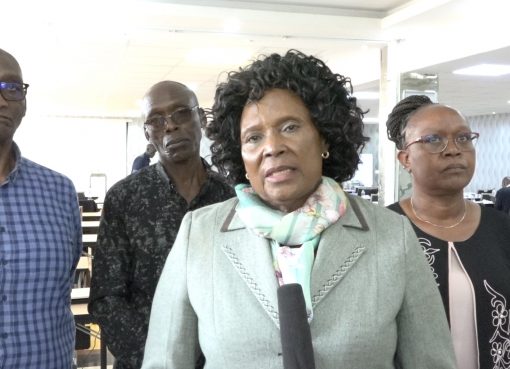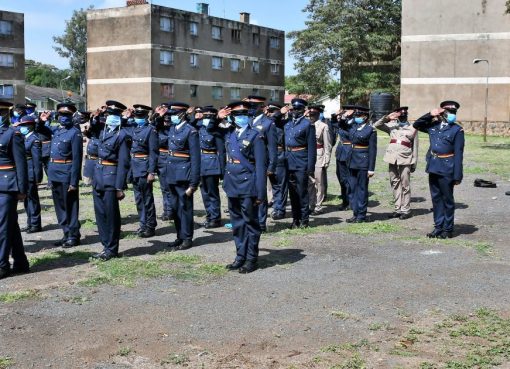Non-Governmental Organizations (NGOs) in Western Region caucus have spent Sh71.9 billion in the current Financial Year on various projects, to cushion residents from the adverse effects of Covid-19 pandemic.
The focus areas included health, children, relief and disaster management, which were actively mainly funded by the World Vision, Compassion International, AMREF and Samaritan Purse International Relief.
Other NGOs that participated in the funding of these projects included; IMPACT Research and Development and Lake Region Development Programme among many more.
The Head of NGOs in the Western Region, Dr James Onkoba, presented the Report during the launch of the Annual celebration of NGOs in the Western Region in Kisumu County. This year’s celebrations started on March 14th and will end tomorrow March 18th 2022.
According to Dr Onkoba, the objective of the event was to celebrate the NGOs adaptation, innovation and resilience in a global pandemic in terms of what they undertake on the ground as well as their achievements.
He stated that 266 NGOs were registered in the current Financial Year bringing the total number of registered NGOs to 11,890 in the region. Out of these, 2,458 NGOs have been deregistered due to various reasons while 128 were reinstated.
Kisumu Central Deputy County Commissioner (DCC), Hussein Alanson Hussein, officially launched the event where some NGOs are exhibiting their services in the region.
Participating NGOs include Red Cross, TINADA, Heart to Heart Smile, Safe Water and Aids Project (SWAP) and Nourishing the Future Kenya among others.
The event’s main activities for the week includes exhibitions by member organizations, in tree planting, Covid-19 vaccination, sanitary towel donations, talks on Sexual and Reproductive Health and Rights, Mental Health and VCT services.
Meanwhile, George Odhiambo, an officer at SWAP based in Kisumu, said they work on various aspects that affect the community such as providing emergency services, doing research on water treatment, supporting the orphans and the vulnerable in the community, as well as adopting schools.
“We give out mosquito nets to malaria-prone areas such as Kisumu, water treatment products for instance water tablets and offer food to floods prone areas such as the Nyando region, through our emergency support programme by giving water treatment equipment,” Odhiambo said.
Odhiambo added that their vision as an organization is to empower the community, so that they could live a healthy life through activities such as social marketing through promoting products that people use in the households such as mosquito nets and sanitation products.
“All these activities are based on championing a clean community, a clean household and encouraging sanitation in the western region and the entire country,” Odhiambo added.
In addition, the organization supports the orphans and vulnerable children by linking-up with other partners to support those who were really in need.
They are able to take them to school and give other support through a platform called the DonorSee. The platform enables them to put out some of the vulnerable faces and members of the platform put some funding to see the children through school.
“We only sample out the orphans and the vulnerable in the community and support them, for instance through education and even ensuring their well-being by giving adequate support through our partners,” Odhiambo explained.
They have also adopted schools such as the Ombaka Primary and Secondary and Ombaka special school in Nyando Sub- County that were affected by the flood. As an organization, they bought textbooks, built some classrooms through the Adopt a School Initiative. This is to help learners in this area to be able to access education after the pandemic.
“We give out support to some schools in the region by buying textbooks, setting up classrooms and libraries in areas of great demand such as Nyando where it is a flood-prone area. Our partners help us fund the projects through the Adopt a School Initiative,” Odhiambo explained.
SWAP has a water laboratory that does the microbiological testing of water and it is the second-largest research institute after the Kenya Medical Research Institute (KEMRI) in matters relating to water treatments and ensuring clean water is distributed to the community through research.
The organization’s funding is from the USAID and Kisumu County Government which helps in the production of mosquito nets in the region and distribution to the community as it is a malaria-prone zone, and also the production of sanitizers, while working hand in hand with the County Government Health Department to ensure that people are vaccinated in the community to reduce the number of Covid-19 infections in the County and the nation at large.
By Becky Galyns and Sharon Laodicah





